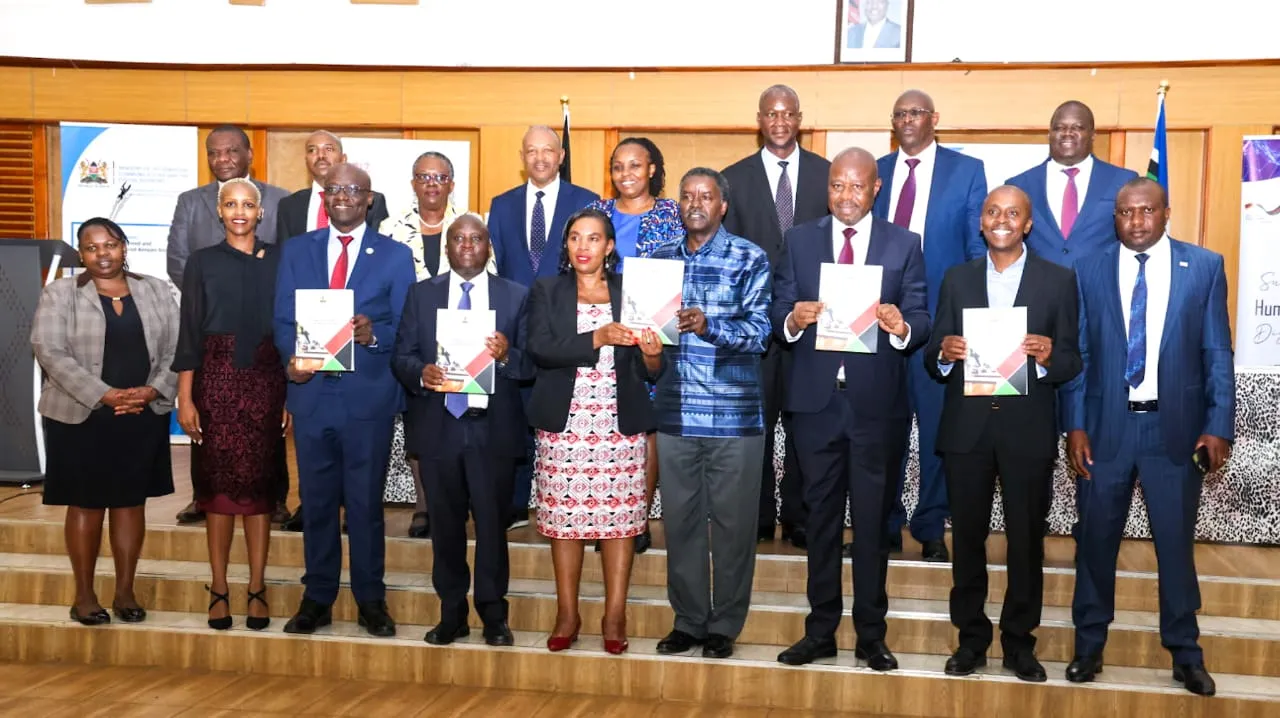By John Walubengo
The recently launched ICT Sector Working Group (SWG) report presents a comprehensive blueprint for Kenya’s digital transformation. It outlines essential recommendations to position the country as a global digital powerhouse.
Here’s a thematic breakdown of what is in the report, and why it matters for every Kenyan.
Digital Infrastructure: The Backbone of Everything
Without solid infrastructure, everything else crumbles. The SWG got that right and is recommending that the National ICT Policy 2019 be revised to focus on manufacturing semiconductors, expanding internet broadband, and attracting tech startups.
If this doesn’t happen, Kenya will be stuck buying tech from other countries, bleeding money instead of generating it. If you need to know what that looks like, just ask any country that is still trying to import basic tech components because they didn’t invest in their manufacturing capabilities.
Then, there’s the issue of integrating ICT within the national infrastructure like roads and energy. You wouldn’t build a city without plumbing, so why build one without the essential digital pipes?
The SWG is urging the government to include ICT infrastructure in every major project. Without this, we risk going backwards—cities that are “smart” in name only, while having enterprises or businesses that can’t compete because of poor connectivity.
Software and Services: Where the Real Money Is
Kenya has some brilliant minds working in the software industry, but without structured support, we’re letting those talents slip through our fingers.
The SWG report calls for Centres of Excellence (CoEs) to be set up in primary schools to the University level to build a local pipeline of talented software developers.
And then there’s the idea of creating and supporting a professional association for software developers. It’s about time. Kenya needs to take software seriously as an industry, not just as a hobby for coders in dark rooms.
If we don’t professionalize and standardize quality software practices, we may never compete with countries that have already built entire ecosystems around their Software Industry.
Data Governance: Data as the New Gold
Data is the new currency, and Kenya is sitting on a goldmine in terms of its potential datasets. But here’s the key thing—without proper governance, these data assets can easily become a liability.
The SWG is pushing for the creation of a National Data Policy and a Data Act. Without standardized rules and practices on how data is collected, curated and managed, we become exposed to privacy breaches, cyberattacks, and economic losses.
There is also a recommendation to have a Data Governance Coordination Committee (DGCC) that will oversee how data assets can be harnessed across ministries and the private sector for socio-economic development.
This isn’t just about protecting citizen’s data—it’s also about making sure Kenya can tap into the value of its data without losing control over it.
Emerging Technologies: Don’t Get Left Behind
AI, Blockchain, Virtual assets—these are the future, and Kenya needs to get deep into the game. The SWG is pushing for a National AI and Emerging Technology Policy, with regulations that are flexible and progressive enough to allow innovation while being firm enough to protect consumers. It’s a tightrope walk, but it’s necessary.
And let’s be honest: if Kenya doesn’t develop a plan for these emerging technologies, we shall end up importing them at a premium, while the local innovators struggle to find funding or support.
By fostering public-private partnerships, the SWG aims to make sure that Kenya is not just a consumer of new tech, but a creator in the innovation value chain.
Cybersecurity: Guarding the Digital Gates
As we digitize, we open ourselves up to new threats. The SWG recommendation was crystal clear—Kenya needs a National Cyber Security Agency (NCSA).
Right now, the country is vulnerable to cyberattacks that could cripple businesses, and infrastructure and have in the past affected government systems. Imagine if a cybercriminal took down our power grid or hacked into our critical financial systems – including the mobile money platforms. It’s not far-fetched and it has happened before.
The report also highlights the need to create specialized cybercrime courts to fast-track cyber-related cases and bolster cybersecurity education within the judicial and criminal justice systems. Without these steps, we risk running around trying to catch up with IT-savvy criminals without ever getting convictions.
John Walubengo is an ICT Lecturer and Consultant. @jwalu.
![]()




